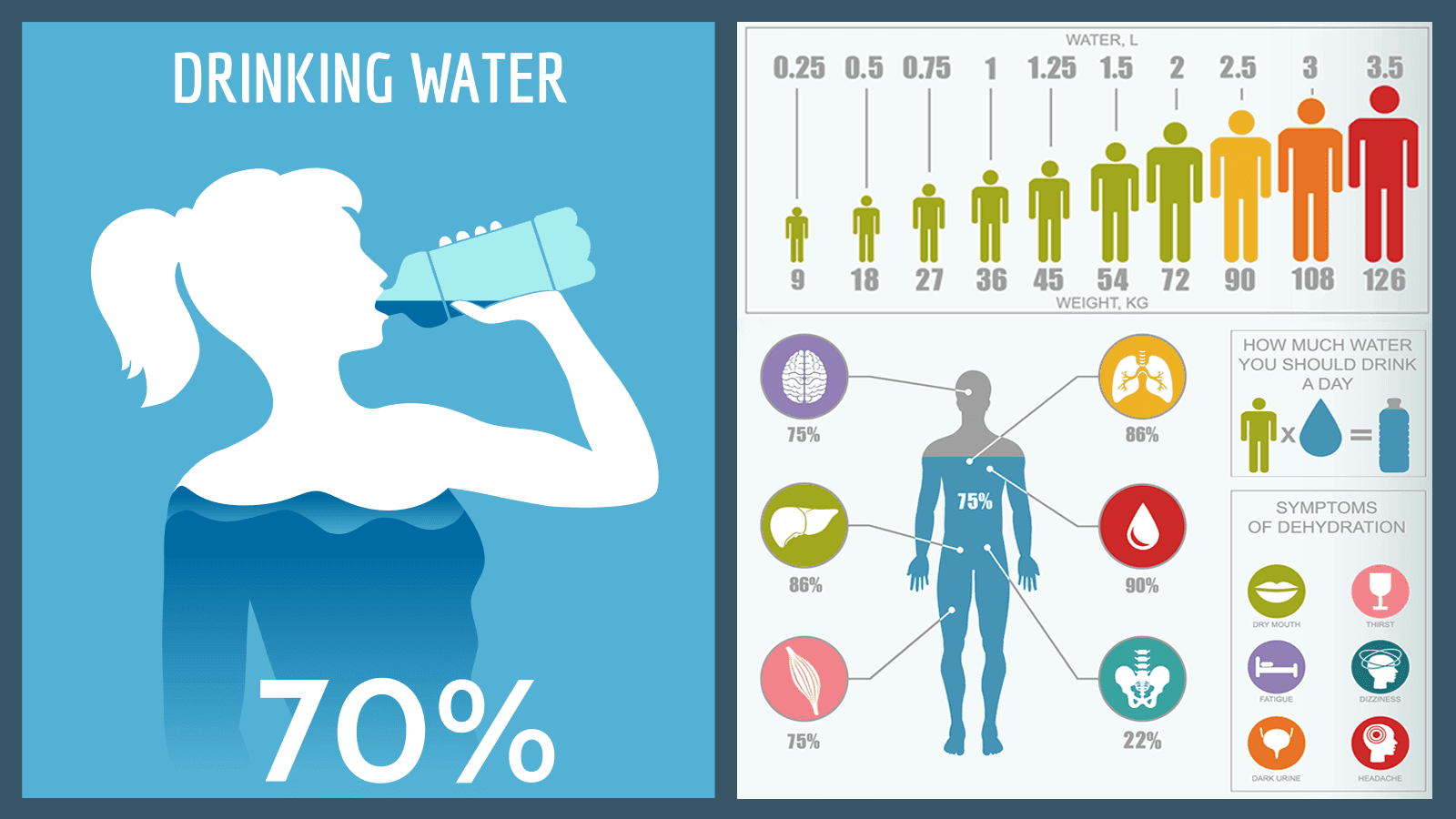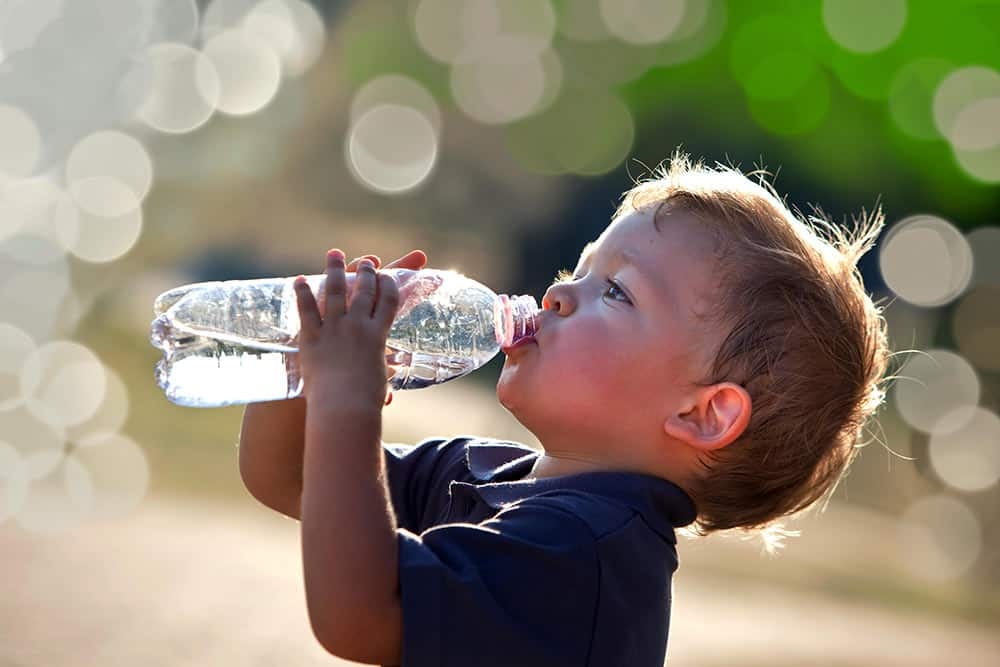Water is a vital nutrient that often goes unnoticed in our daily routines. Yet, it plays an essential role in nearly every bodily function, from regulating body temperature to supporting cell function. Staying hydrated is not just about quenching thirst – it’s about providing your body with the necessary fluids to maintain its systems.
This blog delves into the science behind hydration, exploring how water impacts your health, the benefits of proper hydration, and how you can ensure you’re drinking enough to stay at your best. Whether you’re looking to enhance physical performance, boost cognitive function, or support overall well-being, understanding hydration is key.
The Role of Water in Your Body’s Basic Functions
Water is involved in nearly every process within the human body. It makes up approximately 60% of an adult’s body weight, playing a critical role in everything from transporting nutrients to aiding digestion. Each organ, cell, and tissue relies on water for proper function.

For example, water helps regulate body temperature by promoting sweating and heat dissipation. It also lubricates joints, allowing for smooth movement, and supports the digestive system by facilitating the breakdown of food and absorption of nutrients. Without proper hydration, these processes can become impaired, leading to health issues like dehydration, constipation, and fatigue.
How Water Supports Mental Clarity and Cognitive Function
Dehydration can have a significant impact on your cognitive performance, including concentration, memory, and overall brain function. Studies show that even mild dehydration can lead to difficulties in focus, mood swings, and slower reaction times.
The brain is about 75% water, and maintaining hydration helps it perform tasks efficiently. When you’re hydrated, your brain cells receive the necessary nutrients and oxygen they need to work at optimal levels. On the flip side, dehydration can cause brain fog and hinder cognitive abilities, making it harder to stay productive and focused throughout the day.
To keep your mind sharp, aim to drink water consistently throughout the day rather than waiting until you feel thirsty. This approach will help maintain cognitive function and overall mental well-being.

The Impact of Hydration on Physical Performance
Whether you’re an athlete or just enjoy occasional exercise, hydration plays a critical role in physical performance. When you’re well-hydrated, your body can regulate temperature, transport oxygen to muscles, and produce the necessary energy to perform at your best.
Water is essential during physical activity because it helps maintain blood volume, allowing your heart to pump blood more efficiently. It also aids in muscle recovery and the elimination of toxins from the body through sweat. Inadequate hydration, on the other hand, can lead to muscle cramps, fatigue, and decreased endurance.
To optimize physical performance, make sure to hydrate before, during, and after exercise. If you’re engaging in intense physical activity, consider electrolyte-infused drinks to help replace lost minerals and maintain fluid balance.
Hydration’s Role in Detoxification and Kidney Function
Your kidneys play a crucial role in filtering waste from your blood and regulating fluid balance. Proper hydration supports kidney function by helping flush toxins out of your body. When you drink enough water, it dilutes the substances in the kidneys that can lead to kidney stones and urinary tract infections (UTIs).

Additionally, drinking water helps maintain your body’s natural pH balance, ensuring that your kidneys can operate efficiently. Without enough fluids, waste builds up in your system, leading to dehydration, kidney damage, and other health complications.
To support kidney health, aim to drink at least eight 8-ounce glasses of water daily, or more if you’re active, in hot weather, or pregnant. Staying hydrated promotes healthy kidney function, assisting in waste removal and reducing the risk of kidney-related conditions.
How Hydration Affects Your Skin Health
Water is essential for healthy, glowing skin. The skin is the largest organ in the body, and staying hydrated helps keep it moisturized, reducing the appearance of wrinkles, dryness, and dullness. Dehydrated skin can appear flaky, irritated, and more prone to breakouts, as it struggles to maintain a healthy barrier function.
When you’re well-hydrated, your skin receives the moisture it needs to stay elastic and firm. Additionally, water helps flush toxins from the body, which can contribute to clearer skin. Dehydration, on the other hand, can lead to clogged pores and skin conditions like eczema or acne.
To maintain healthy skin, make water intake a priority. Consider combining hydration with skincare routines such as moisturizing and sun protection to achieve radiant skin.
How Much Water Should You Drink?
The amount of water each person needs varies based on factors like age, weight, activity level, and climate. A general recommendation is to drink at least eight 8-ounce glasses of water a day, often referred to as the “8×8 rule.” However, this guideline may not be sufficient for everyone, especially those who exercise regularly or live in hot climates.

For more precise recommendations, consider factors such as your exercise habits, age, and overall health. A good way to monitor hydration is by checking the color of your urine. If it’s light yellow or clear, you’re well-hydrated; if it’s dark yellow, you may need more fluids.
Signs of Dehydration: When to Drink More Water
Recognizing the signs of dehydration is essential to prevent health problems. Early symptoms of dehydration include dry mouth, fatigue, dizziness, and dark urine. If left unaddressed, dehydration can lead to more serious issues, such as confusion, fainting, or kidney stones.
If you’re experiencing any of these symptoms, it’s essential to increase your water intake immediately. It’s also important to maintain hydration during illness, as fever, vomiting, or diarrhea can accelerate fluid loss.
Conclusion: Hydration as a Foundation for Health
The science behind staying hydrated is clear: water is essential for maintaining every aspect of health, from physical performance to mental clarity and detoxification. By prioritizing hydration, you can improve your well-being, boost productivity, and support your body’s natural systems.
For optimal health, make water a part of your daily routine, whether that means drinking more throughout the day or incorporating water-rich foods into your meals. Hydration is a simple but powerful tool for enhancing your health and achieving overall wellness.
We encourage you to explore more health tips and hydration strategies on our website. Stay informed and interact with our community by commenting below or sharing your hydration habits. Let’s work together to achieve a healthier, more hydrated life!

Leave a Reply